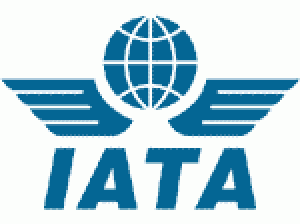IATA:Traffic up slightly but too early for recovery

The International Air Transport Association has reported international scheduled traffic results for September 2009 with passenger demand essentially unchanged, increasing 0.3% compared to September 2008.
Elsewhere IATA chief Giovanni Bisignani also took the time to criticise the UK Governments rise in Air Passenger Duty, calling it ‘the wrong response.’
IATA made it clear that the year-over-year improvement in demand is misleading as it is largely due to comparisons with an exceptionally weak September 2008 when traffic fell sharply (-2.9% for passenger and -7.7% for cargo). Seasonally adjusted statistics actually show a 0.3% drop in passenger volumes and a 1.4% fall in cargo volumes for September 2009 compared with August 2009. IATA says it does reflect the pause seen in the economic recovery in the US and elsewhere in the past few months.
“It is far too early to call this a recovery. The worst may be over in terms of the fall in demand, but yields continue to be a disaster and costs are rising. The airline industry remains firmly in the red with a fragile business environment,” said Bisignani, IATA’s Director General and CEO.
Airlines continue to carefully manage capacity. Seasonally adjusted passenger capacity has remained unchanged throughout the year while cargo capacity has edged up only slightly in the last two months. Load factors have risen to pre-crisis levels which should help to correct the precipitous fall in yields (-14% for economy, -18% for premium and –20% in cargo).
ADVERTISEMENT
Rising costs are a newer concern. As airlines adjust capacity to match demand, aircraft are flying fewer hours (-3% for some aircraft types). This is raising non-fuel unit costs. At the same time, oil prices have risen to above US$75 per barrel (Brent) considerably higher than the US$43 per barrel level at the start of the year.
Passenger demand is now 5% better than the low point reached in March 2009, but 6% below the peak recorded in early 2008.
Asia-Pacific carriers recorded the most significant improvement, from -1.6% in August to +2.1% in September. Bucking the global trend, seasonally adjusted passenger volumes grew almost 1% from August to September. Three factors are influencing this relative strength. Government stimulus packages in the major economies are driving production increases, the region’s banking system is relatively strong and the region’s consumers are not as burdened by debt as those in Europe and the US.
By contrast, European carriers saw a deterioration in demand from -2.8% in August to -4.2% in September. This partly reflects a loss of market share by network carriers on short-haul routes to low-cost carriers. More significantly, there has been a deterioration in demand on long-haul routes. For routes to Asia, this appears to be the influence of “home-carrier-bias” which has seen Asia-Pacific carriers reap the benefit of stronger regional economies. On routes to North America, lower demand in general is related to the dip in consumer and business confidence in economies on both sides of the North Atlantic.
And IATA has made it very clear that it believes the UK Air Passenger Duty hike is the wrong response to the industry trauma.
“The policies of some governments in light of the industry’s trauma are disappointing. The UK is a case in point of a government detached from reality. The global economic crisis makes cost reduction a matter of survival. And the upcoming Copenhagen meeting on climate change demands attention on measures to reduce emissions. What is the UK government doing? From 1 November it is increasing its Air Passenger Duty (APD) to collect GBP 2.5 billion annually from air travelers in the name of the environment. They have it all wrong. Taxes won’t reduce emissions. And making travel more expensive will not stimulate the economy,” said Bisignani.

